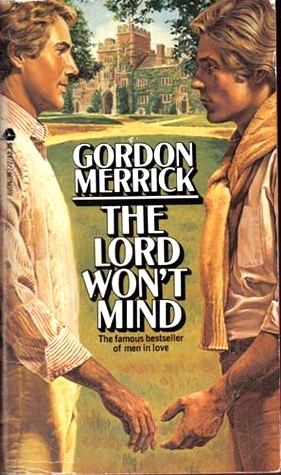 Gordon Merrick and The Great Gay American Novel
Gordon Merrick and The Great Gay American Novel
by Joseph M. Ortiz
Lexington Books. 359 pages, $120.
 Gordon Merrick and The Great Gay American Novel
Gordon Merrick and The Great Gay American Novel
by Joseph M. Ortiz
Lexington Books. 359 pages, $120.

Who did read Merrick’s books? Not his agent, Merrick eventually realized, or even his editor at Avon Books. But thousands of fans did. Sales figures are sprinkled throughout Joseph M. Ortiz’ new biography, Gordon Merrick and the Great Gay American Novel. One refers to over a million books sold. They did well in France and England. French critics considered Merrick a “serious” novelist. It helped that Merrick was fluent in French (one reason the OSS hired him), and so did the fact that he was critical of his own country’s shortcomings. His early books, which Ortiz calls “protest” novels, were about the cruelty of both sides in World War II, American racism, and class prejudice. The new ones were about sex, however, because Merrick felt it was important that people know what gay men did in the sack. Merrick took pains to get his sex scenes just right, as Ortiz discovered after going through Merrick’s papers in the Princeton library. This, of course, opened Merrick up to the charge of writing soft-core porn.
Gore Vidal claimed that he’d been blackballed by the critics after publishing The City and the Pillar because of its subject matter. Whether or not that’s true, this is sort of what happened to Merrick after The Lord Won’t Mind. Until then, the theme of homosexuality in his novels had been a minor one, his lead characters always straight, but with The Lord Won’t Mind the struggle of a gay man to find happiness became the main subject. Writing about his own life liberated Merrick, as it would so many writers in the following decade. Four years after ignoring The Lord Won’t Mind, the Times reviewer praised Patricia Nell Warren’s The Front Runner as “the most moving, monumental love story ever written about gay life.” It was only the first in an efflorescence of gay novels in the late 1970s.
The main thrust of Ortiz’ book is to answer the question: Why did Merrick’s novels get so little respect from critics? The answer is to be found in the meticulous research he’s done. There is not, for anyone interested in the literary aspect of gay liberation, a page or paragraph without interest in this gracefully written study. “The purpose of this book,” Ortiz writes, “is not to argue that Gordon’s novels are masterpieces that have been unjustly banned from the upper echelon of gay literature.” Nor is it, strictly speaking, a biography of Gordon Merrick. It’s the story of a book; but because it’s this book, it is about gay liberation. It reminds us that the latter was not just Stonewall and Pride parades; it was a cultural battle, conducted via movies, TV shows, journalism, novels, and plays. And you could argue it really began in the theater.
Andrew Holleran is the author of the new novel The Kingdom of Sand (Farrar, Straus and Giroux).